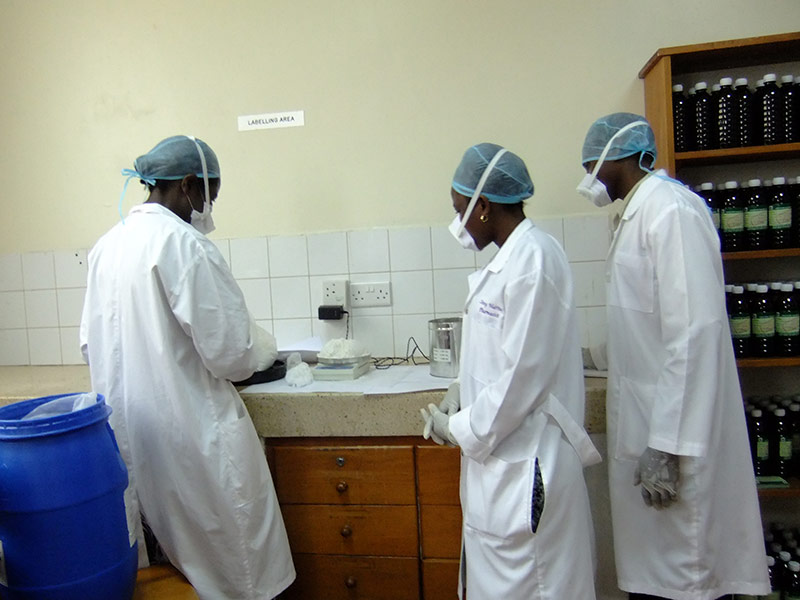The greatest gift we can give to those suffering, is the chance to live and die in peace.
Ensuring Care is Accessible to Patients
Hospice Africa Uganda provides patient-centred, affordable, culturally appropriate care to patients at its three clinical centres: in Kampala, Mbarara, and Hoima. This service is augmented by home visits and regularly scheduled mobile clinics at outreach sites, serving those who live too far or are too ill to travel to the centres. HAU nurses also do consultations in hospitals.
Care at Home
A hospice, by definition, provides a home for the care of patients who are typically towards the end of life. Whilst in most western cultures, end of life care happens outside the home, in Africa most patients feel more comfortable in their own, familiar environment where they have access to support networks such as family and spiritual leaders. Lots of our patients are too ill or can’t afford to travel into our clinics so our teams head out on ‘home visits’ in order to provide oral morphine and counselling for our patients and their families. We aim to supply patients with the means to be as comfortable and peaceful as possible in their own environment, so they, along with their families, can approach life and death in peace.
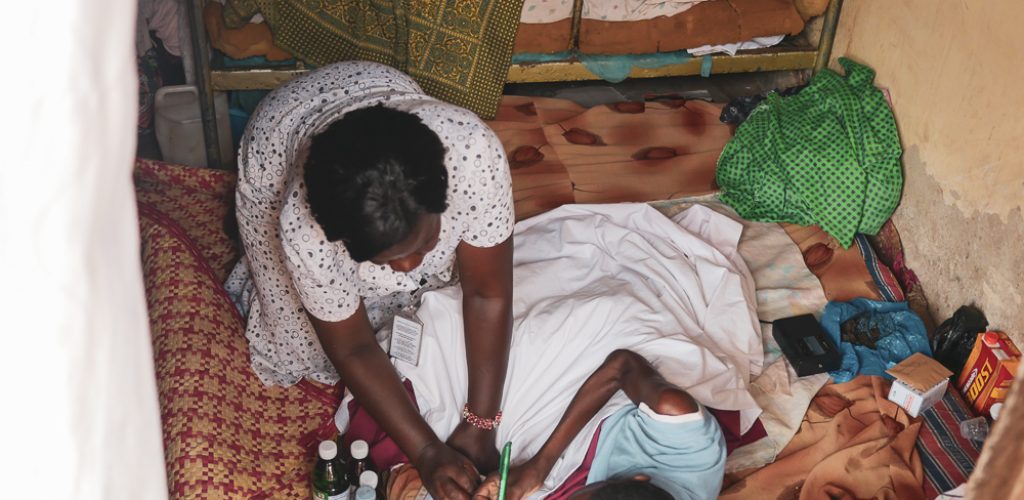
Pain and Symptom Relief
A key advancement for our palliative care mission in Africa has been the availability of affordable, bottled oral morphine. This revolutionary medicine has allowed us to control severe pain for cancer patients and most importantly, administer it at home.
Back in 1993 the Hospice Africa team set about convincing the government to sanction the import of powdered morphine and allow nurses rather than just doctors to prescribe it. This crucial step has meant that we can now produce our own morphine, on site and prescribe it to our patients. This method is extremely affordable and allows patients to control their pain at home.
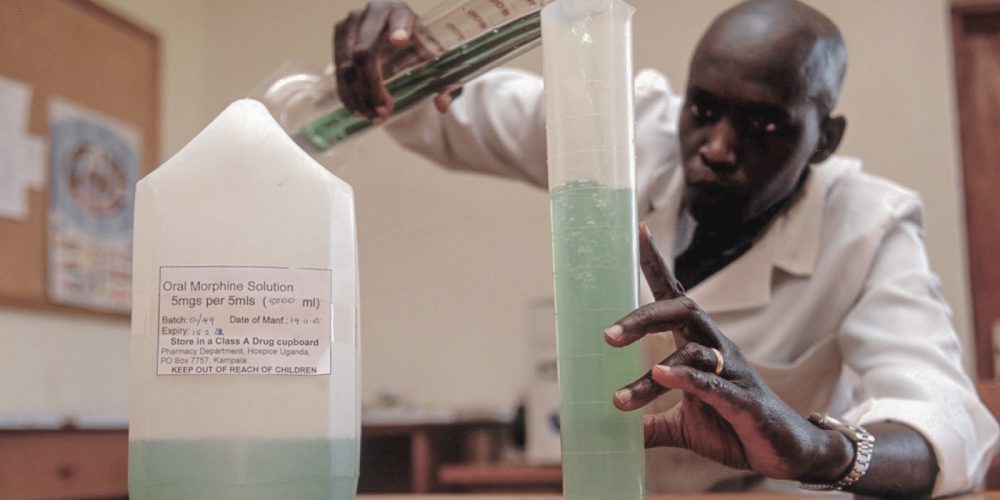
Spiritual and Bereavement Support
This is a big part of the care we provide in Uganda. With a large percentage of the country and our team having a strong spirituality, it’s an important aspect not to be ignored in the face of suffering.
Sickness and death are very unique and special times in a person’s journey through life. In addition to the way we provide nursing care, our speciality is to provide care for the whole person and their loved ones. This includes control of pain and symptoms, provisions for psychosocial support and spiritual care adapted to different cultural beliefs. Even if a patients says they have no religion, we feel it is important to reassure them that we will be there for as long as they need to bring them calmness and peace.
The reality of the work we do means that we are with patients in life but ultimately also in death. After a patient’s death, we endeavour to provide the family with support through this tough time, including follow up visits and attending burials. Reflecting on these losses is necessary to ensure the value of what we do is not forgotten and the spirit of Hospice Africa remains with the patient and their family.
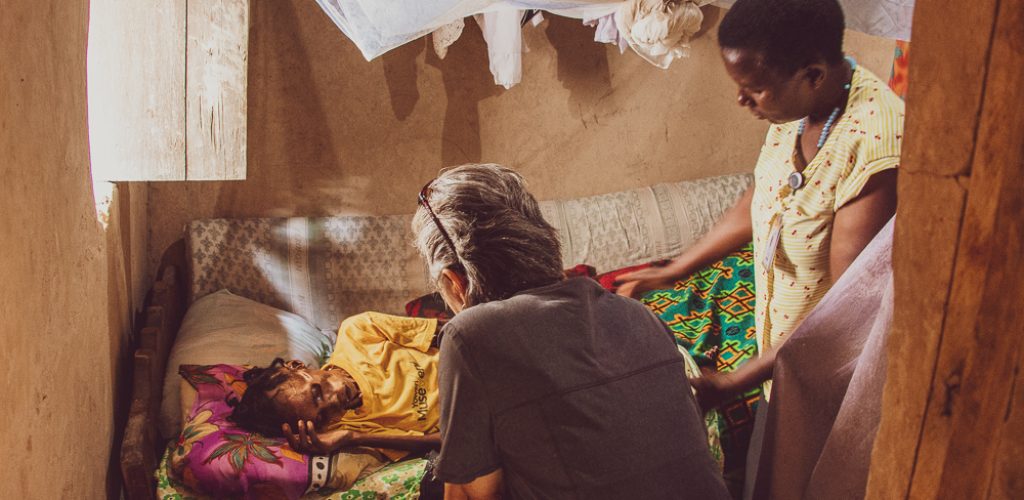
A Sip Of Morphine: Uganda's Old-School Solution To A Shortage Of Painkillers
Nurith Aizenman, reporter for US public radio station NPR, writes about how oral morphine has revolutionised pain relief across Africa. The article was published in November 2019 and you can read or listen to the report on the NPR website by clicking below.

